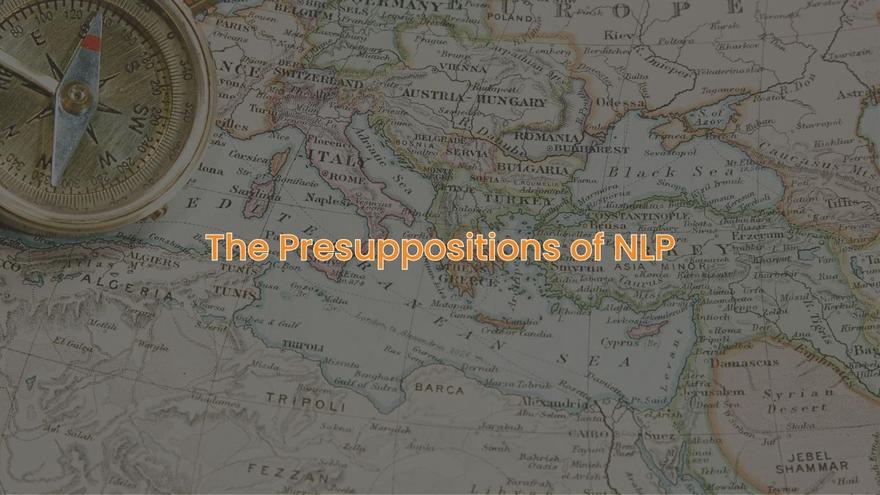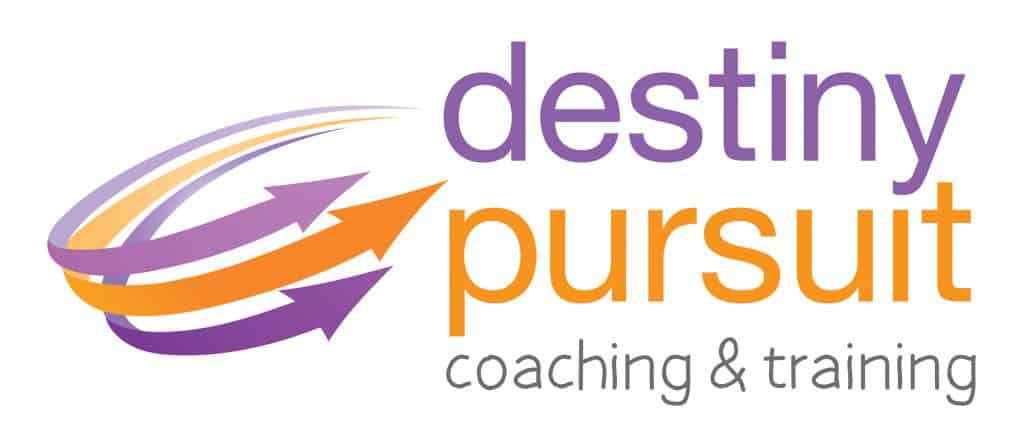The Presuppositions of NLP - NLP Matters, Episode #030

As we begin our 2nd season of the NLP Matters Podcast, we move on to explore what is perhaps the most fundamental component of NLP, the NLP presuppositions. These presuppositions provide us with the compass that guides us as we use and apply powerful NLP techniques to take control of our own lives and really make a difference.
There are a number of presuppositions of NLP., in fact, 14 in all. Despite the fact that they have varying origins, they form the basis upon which the work of NLP is built, and together, they provide the framework that ensures the techniques and strategies of NLP are developed and implemented ethically and responsibly.
In this episode, we’ll briefly introduce each of the presuppositions, and over the next few episodes we will explore how they can apply in our own lives in more depth.
Listen to the podcast to learn more.
Listen to the Podcast
Here are some key takeaways from this episode:
Underlying all NLP is the belief and acceptance that each person has their own unique model of the world developed from and based on their own subjective experience of reality. For each of us, our environment, culture, family and personal experiences shape and mold our reality. This fundamental insight acts as a foundation for us in being able to work on our own growth and development whilst empathetically supporting others.
The Presuppositions of NLP are a set of statements, essentially value based beliefs, that operate as the context within which we use NLP. These beliefs or presuppositions are resourceful in that they serve both us and others. Together they form the ecological framework that ensures the practice of NLP is constructive and expansive rather than restrictive and destructive. Unlike other modalities which are in contrast to NLP, where there is a focus on a person’s “deficits” and the work starts from the presupposition that we are broken, we have problems and we need to be fixed, NLP is a growth and resource-rich model that is built on the belief that there is nothing to fix, but rather that we are evolving. We are learning and we do have everything within us that we need.
The Presuppositions of NLP are:
Respect for someone's view of the world.
- Being able to show a deep respect for another person's model means that we can respond to the way others see the world with empathy and compassion, even if we disagree with them.
- Our view of the world is just one possible way to view things. Embracing this presupp means that we can give up the need to be right and accept that we have our view whilst others have their own perspective.
- Using this approach, we create a zone of safety within which we and they can actually explore each others models, knowing that we are not being judged and they also are not being judged or evaluated harshly by us merely because the things that they believe are different to our beliefs, or the things they have done are not the way that we would do them. They have built their model of the world and we have built ours.
Behaviour and change are to be evaluated in terms of context and ecology.
- The frame of ecology builds even further on the notion of respecting the person's model of the world. When we see particular behaviour, it can only really be evaluated in terms of the context in which the behavior occurred, or even when we're looking at changes that someone wants to make, these too can only be evaluated in terms of the context in which the change is going to occur.
- If we fail to consider the context of a behaviour, we may fall into the trap of judging ourselves or someone else harshly for a behaviour that really in that particular context is OK. In fact, it could even be the most ecological behaviour available to them within that context. Either way, the power of this presupposition is that it allows us to be really curious about the meaning, the judgements, and the evaluations we make about our and other's behaviour.
Resistance from someone you are communicating with is a sign of lack of rapport, and the meaning of communication is the response you get.
- There are no resistant people, only inflexible communicators. Effective communicators accept and utilize all communication presented to them. This places the responsibility for successful communication firmly with the initiator of the communication.
- In other words, if we want someone to understand us, or if we get a response that we didn’t want, it is our responsibility to come up with ways for the other person to get it. In contrast, if we choose to blame the other person for the misunderstanding we have chosen to give away our power to communicate.
People are not their behaviours.
- This presupp comes from a humanistic perspective. We accept the person whilst we seek to change the behaviour. Taking it on as our own allows us to respond with compassion to others even when we dislike their behaviour. It is a recognition that a person is not just the sum of what they do, we are all so much more than that. As we have already seen, all behaviour occurs in a context. To know a person or even to know ourselves, we need to look beyond just behaviour.
Everyone is doing the best they can with the resources they have available.
- This presupp recognizes that behavior is geared for adaptation, present behavior is the best choice available, and every behavior is motivated by a positive intent. This means that all behaviour is intended to meet a need. Even though we might think it’s not the best way to go about it, we are doing the best we can with what we have got. The challenge for all of us, when we have behaviours we want to change is to find more resourceful ways of meeting these needs.
Calibrate on behaviour. Recognise that the most important information about a person is that person’s behaviour.
- Behaviour reveals our unconscious mind at work.
- A person’s behaviour is the best indicator of their underlying beliefs, their underlying values, and their attitudes. It reveals to us some of the things that perhaps could be obstacles to achieving goals or changing behaviours, and this can make us become aware of these values, beliefs and attitudes. Once we have awareness then we can make changes, if we want to, but if these beliefs, values and attitudes remain outside of our awareness it is likely that we will continue the same old behaviour over and over.
The map is not the territory.
- We are constantly taking in information and using that to construct our own unique representation of reality, but that representation is based on what we noticed, what we paid attention to, not the reality itself.
- In NLP, we recognize that we create our internal representation by selecting “a sample” of what is available to us from the outside world. Our cognitive capacity and the limitations of our five senses mean it's totally impossible for us to process every single piece of information that is available to us moment by moment. And so, we go through a process of deleting, distorting, and generalizing and filtering in the information from which we then create our internal representation, and we give our internal representation descriptions and meanings and labels, then, we live as though that internal representation is in fact reality.
- An added bonus of this presupp is that when we recognise that the map is not the territory, then accepting and respecting another’s map of the world becomes easier because we know they can have their map, and we can have ours.
You are in charge of your mind, and therefore your results (and I am also in charge of my mind and therefore my results).
- Like other presuppositions, this is a statement that acknowledges our personal power because when we are personally responsible, we are also in control of our own results. It means we don’t get to blame others or external circumstances for what happens in our life. We get to be truly at cause.
People have all the resources they need to succeed and to achieve their desired outcomes.
- There are no unresourceful people, only unresourceful states.
- The resources that we have within us mean that we are always capable of learning. If we need some additional skills, we know we can learn and acquire these skills and then use them to achieve our desired outcomes. Intrinsic to NLP is the belief that human beings are already whole and complete and capable.
All NLP procedures should increase wholeness and choice
- In NLP, we are not in the business of getting rid of things like negative emotions or thoughts. We recognise that the gamut of human experience is wide and deep, and that we are all involved in a journey of discovering how we might integrate all these experiences into our whole self.
- The focus on increasing choice when we're using NLP, means that we are creating new options and possibilities for ourselves and others. By increasing choice, we create new possibilities, and when we step back and recognize that there are a variety of options available, then we can make a choice that aligns well with our ultimate goals and the lifestyle we want to have.
There is no failure, only feedback.
- When we take on board all the other presuppositions along with this one, we are given the tools to come to terms with our own humanity, and the humanity of those around us, because if we can just accept the feedback that our behaviour and the behaviour of others gives us, without making it mean failure, we can receive it as a gift. We can take on the lessons, the insights, and the wisdom that we now have access to without all the negativity we have been taught to pile on top of it.
The Law of Requisite Variety
- The Law of Requisite Variety states that the system or the person with the most flexibility of behavior will control the system. This is a belief that underpins all the other presuppositions. The quality of our life, and the lives of those around us, is directly linked to our capacity to bring behavioural flexibility to our day to day living.
So, there they are - the guiding presuppositions of NLP that act like a compass to direct and shape how we interpret and use the practice and techniques of NLP both for ourselves and for others.
In the next episode, we will examine two NLP presuppositions - The Map Is Not the Territory, and Having Respect for the Other Person’s Model of the World.
Listen to the Podcast
Joanne Clark
Joanne Clark is an Internationally accredited Master Trainer of NLP who has been delivering NLP training since 2011. Being on her feet in front of training rooms is where Jo loves to be and her passion for inclusive and immersive training that delivers outstanding learning outcomes is apparent to everyone in her training rooms. On average Jo delivers 140 days of training per year in addition to online webinars, guest speaker events and group coaching.
“NLP is at the core of all my training and coaching, it is at the core of who I am, how I interact and connect with people. I am absolutely passionate about spreading the NLP tools across the planet as I endeavour to support Robert Dilts’s vision of Creating a world to which people want to belong.” Joanne Clark
Certified Master Trainer of NLP; Master Practitioner NLP, Hypnotherapy & Matrix Therapies; Performance Coach; Cert IV Coaching; Advanced Practitioner in Coaching; Cert IV in Business; BA(Hons); Majors in Sociology and Psychology; Parent Education Leadership Training (PELT) Certificate; Mother of four children; Private Pilot (PPL); Diploma in Life Coaching


0 comments
Leave a comment
Please log in or register to post a comment